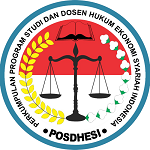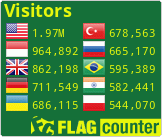Integrating Islamic Business Ethics in Labor Protection and Minimum Wage Determination in Indonesia
DOI:
https://doi.org/10.32332/muamalah.v3i1.8188Keywords:
Islamic Business Ethics, Labor Welfare, Determination of Labor UMRAbstract
Policies related to the minimum wage are a contentious issue in employment across both developed and developing countries, aiming to meet community needs and benefit families. However, a research gap exists in applying justice and moral principles to wage determination from the perspective of Sharia economic law in Indonesia. This study aims to analyze fair wage components according to Islam and the role of business ethics in protecting workers and determining wages. Employing a literature review method, data were gathered from various sources such as books, journals, and previous research findings, which were reviewed and analyzed using descriptive analysis techniques. The study emphasizes the importance of justice and moral components in Islamic wage determination, rooted in the absolute essence granted by God, essential for morality. Business ethics in work protection and wage determination are crucial to ensure fair treatment and prevent exploitation. Recommended steps include optimal labor protection and wage determination, timely payment of agreed wages, recognition and guarantee of labor, fair wage determination without harm, and providing worker freedom. The study's novelty lies in integrating Islamic principles of justice and morality into minimum wage policies and developing practical business ethics guidelines for labor protection and wage determination under Sharia economic law in Indonesia.
Downloads
References
Downloads
Published
Issue
Section
License
Copyright (c) 2024 Muhammad Miftahul Ikhsan, Neni Nuraeni, Deffa Meiriyanti

This work is licensed under a Creative Commons Attribution-ShareAlike 4.0 International License.
All articles in the Mu'amalah: Jurnal Hukum Ekonomi Syariah can be disseminated on condition that they still include the identity of the article and the source (Mu'amalah). The publisher is not responsible for the contents of the article. The content of the article is the sole responsibility of the author.
Authors who publish this subject agree to the following terms:
First, the Authors retain copyright and grant the journal rights from the first publication with the work simultaneously licensed under a Creative Commons Attribution-ShareAlike 4.0 International License that allows others to share the work with an acknowledgement of the work's authorship and initial publication in this journal.
Secondly, the authors can enter into a separate or an acknowledgement of its initial (e.g., post-institutional repository or publish it in a book) publication in this journal.
![]()
Third, the authors are permitted and encouraged to post their work online (e.g., in institutional repositories or on their website) before publishing work is cited.








